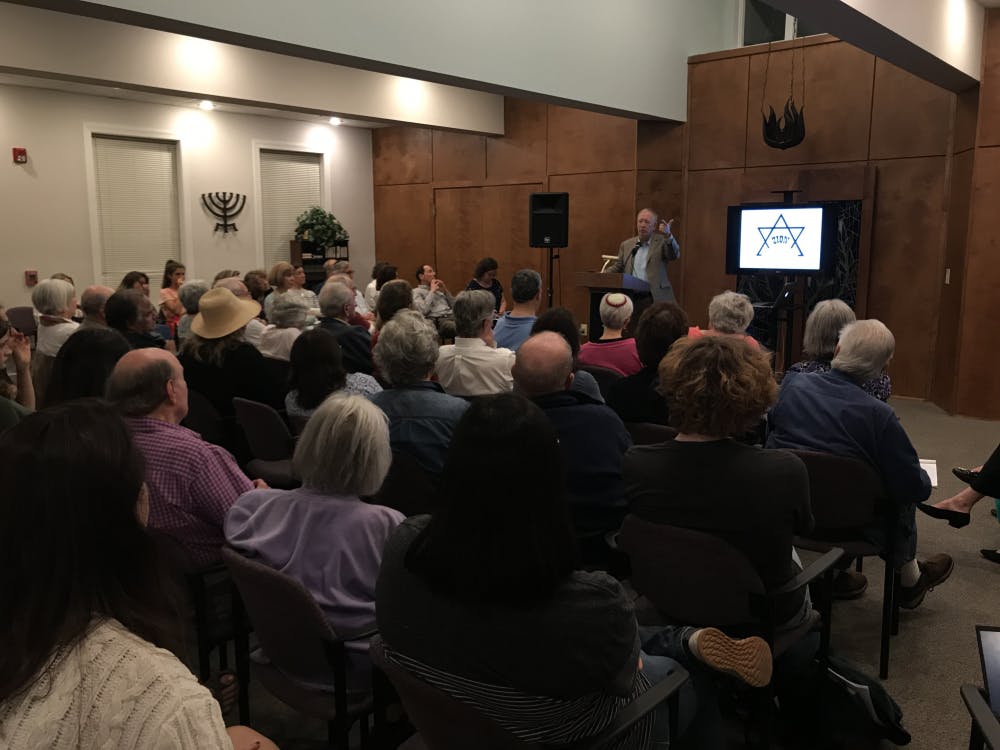A California professor explained the difference between three problematic terms at UNC Hillel on Thursday following last week’s discovery of posters in Davis Library containing anti-Semitic messages.
Following an invitation from UNC Hillel leadership, professor Marc Dollinger stepped away from his book tour to give the speech, titled "Anti-Israelism, Anti-Zionism, and Anti-Semitism.” Dollinger, a contemporary Jewish historian, holds the Richard and Rhoda Goldman Endowed Chair in Jewish studies and Social Responsibility at San Francisco State University.
Dollinger began with the definition of three terms — anti-Israelism, anti-Zionism and anti-Semitism — and said they reveal existing assumptions each person holds about American and Israeli-Jewish life.
“While anti-Israelism proves easy to define, anti-Zionism forces us to explore uncomfortable tenets in traditional Judaism as well as tensions between Jews and the modern left," Dollinger said. "Anti-Semitism, defined in modern eugenic-based terms, emerges less often than most observers think.”
Dollinger said anti-Israelism relates only to Israeli government policy, not Israel’s right to exist. The term anti-Semitism didn’t exist until 1879 during the eugenics movement, Dollinger said, which was a pseudo-scientific approach that held Jewish people as genetically inferior to other human beings. Anti-Zionism, he said, is the hardest to define, but it denies Jewish people their Zionism and also denies them of their Judaism.
Dollinger said he has four different lectures about anti-Semitism. For his presentation at UNC, he said he shortened the talk so he could answer student questions because of the anti-Semitic paraphernalia found in Davis Library last week.
One student asked about Dollinger’s reaction to the recent video that appears to show a Palestinian rapper expressing anti-Semitic ideas at a joint UNC-Duke conference about the conflict in Gaza. Dollinger advised independently checking the source before believing it, because doing otherwise would feed into something he called the constructed narrative.
The constructed narrative is what Dollinger calls the act of creating a personal version of history that people bring into their understanding of current events.
“Every bit of it’s true, and we tend to kind of emphasize the parts of our history, our narrative, that we like to,” he said.



